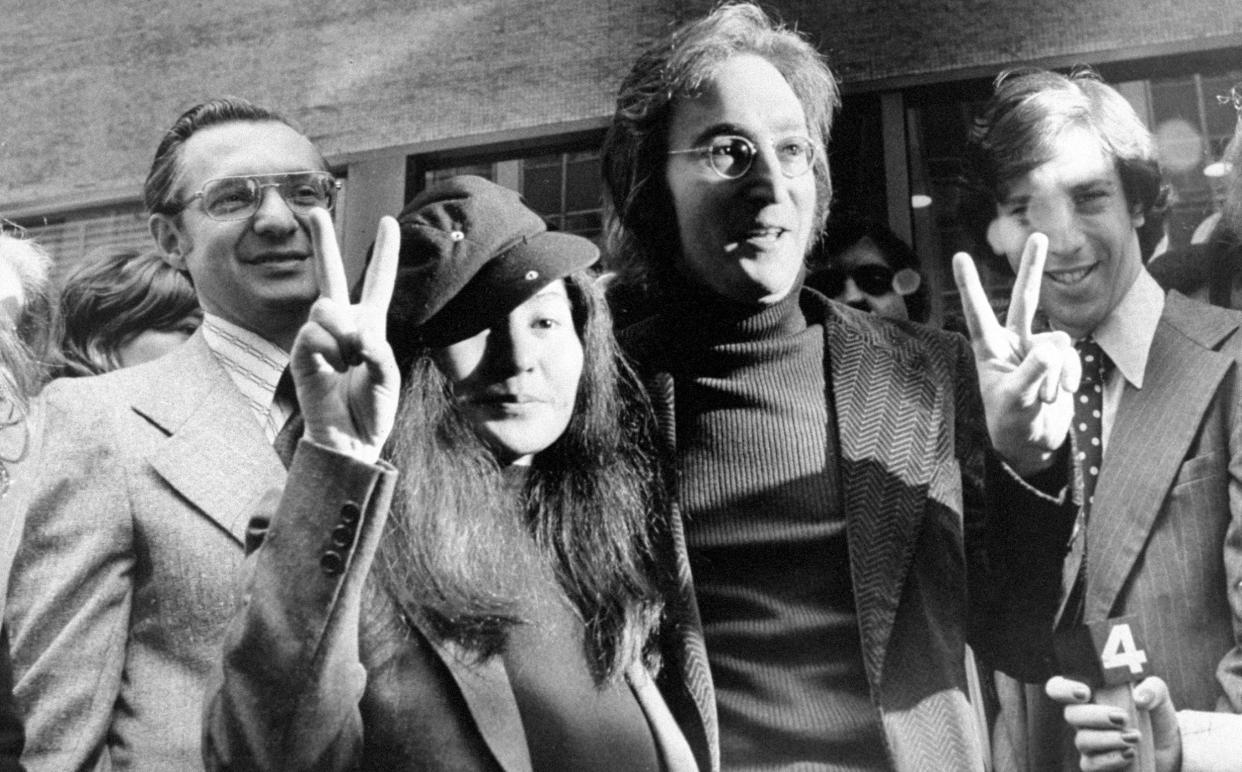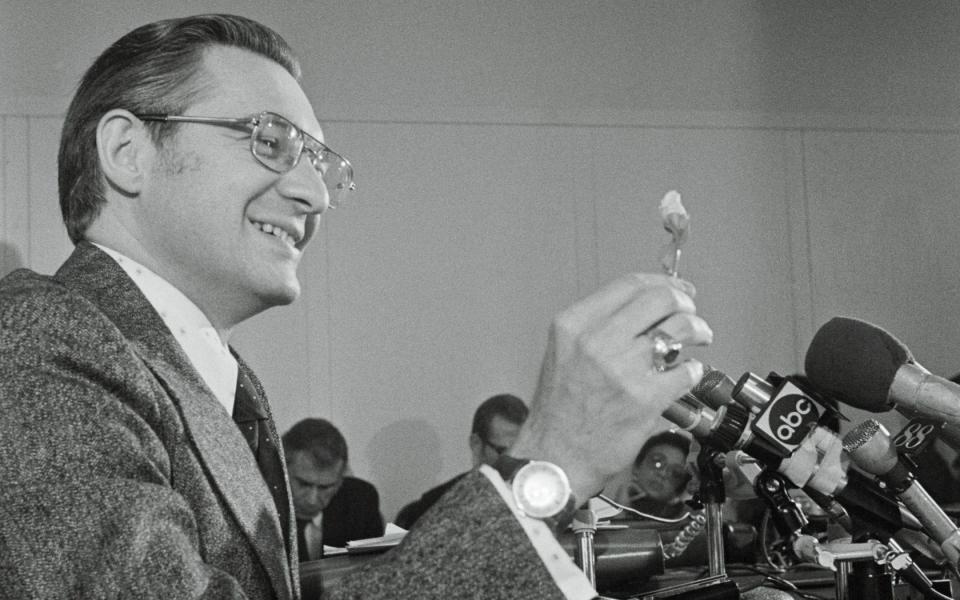Leon Wildes, US lawyer who helped John Lennon to get a green card – obituary

- Oops!Something went wrong.Please try again later.
Leon Wildes, who has died aged 90, was the American lawyer who represented John Lennon during his struggle against deportation from the US in the 1970s.
In 1972 Richard Nixon was seeking re-election, and allies of the administration orchestrated a campaign of harassment against his political opponents. Lennon, who had gone to the US with his wife Yoko Ono on a temporary visa in 1971, had made himself unpopular with his high-profile protests against the Vietnam War. It was later revealed that the Republican Senator Strom Thurmond had suggested deportation proceedings as “a strategic counter-measure” against him.
On March 23 1973, while Yoko Ono was granted permanent residency, Lennon was given 60 days to leave the US, the ostensible reason for his deportation being a 1968 conviction in Britain for possession of marijuana, But Wildes was surprised at the energy being shown by the immigration service in targeting the former Beatle, and suspicious of the men who kept calling at Lennon’s apartment wanting to fix his phone – and of the two men across the street who seemed to take forever fixing a bike.
But he was as surprised as anyone when, a week after the deportation order came through, Lennon and Ono held a press conference where Lennon announced the “birth of a new conceptual country: Nutopia” – a country “with no land, no boundaries, no passports, only people. Nutopia has no laws, other than cosmic... As two ambassadors of Nutopia, we ask for diplomatic immunity, and recognition in the United Nations for our country and its people.”
Wildes recalled: “Yoko came and apologised to me afterwards. She said, ‘You have to understand that when you’re representing an artist, we’re not always predictable.’ ”
Although the stunt succeeded in getting Lennon’s case into the press, it did nothing to help his prospects of avoiding deportation.
Wildes’s strategy was to play for time by compiling instances where other drug offenders had not been deported, and arguing that Lennon needed to stay in the US to support his wife, who was embroiled in a custody battle with her former husband Anthony Cox, who had disappeared with their daughter Kyoto in 1971. In fact Wildes won the case on a technicality: Lennon’s British conviction had been for possession of hashish (rather than marijuana), which did not qualify as a ground for deportation under US law.

But at the same time, through use of Freedom of Information Act requests, Wildes established that the US Immigration and Naturalization Services (INS) and the government had a secret programme that would designate certain immigrants as priorities for deportation on political grounds. On October 8 1975, after Nixon had resigned due to the Watergate scandal, a Court of Appeals judge stated: “The courts will not condone selective deportation based upon secret political grounds. Lennon’s four-year battle to remain in our country is testimony to his faith in this American dream.”
Leon Wildes was born into a Jewish family at Olyphant, Pennsylvania, on March 4 1933. His parents ran a clothing business. After qualifying in law at New York University he was admitted to the New York Bar in 1958 and became an immigration specialist. In 1960 he co-founded the legal firm Wildes and Weinberg.
As a young man his musical passion had been for opera, and in 1972, when Lennon walked into his office, Wildes had no idea who he was. But they became good friends to the extent that Wildes even used the song Imagine as hold music on his office telephone. After Lennon’s death he attended Beatles conventions, and in 2006 appeared in a documentary, The US vs John Lennon.
Leon Wildes is survived by his third wife Alice and by two sons from his first marriage, to Ruth Schoenwalter, who died in 1995.
Leon Wildes, born March 4 1933, died January 8 2024

